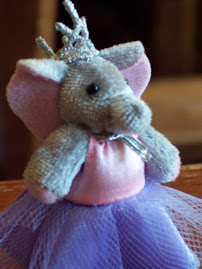I just read the following article about a new study that claims to show more proof that breastfed infants are smarter than formula fed ones. It was interesting to see that babies who were given any formula at all ranked lower than ones who were exclusively breastfed. The study's authors don't claim to know exactly what makes the difference, whether it's in the milk itself, the act of nursing, or the fact that mothers who breastfeed long-term interact with their babies more and are themselves, better educated than formula moms. What's missing is something I've commented on before: breastfed babies aren't smarter than formula fed babies. Breastfeeding is the biological norm, so breastfed babies are of normal intelligence. Formula fed babies are less smart than breastfed babies. Until we start using phrases like that and drawing attention to the issue, people will continue to make excuses for their choices.
Here's the article I read:
Breast-fed Children Smarter
A new study provides some of the best evidence to date that breast-feeding can make children smarter, an international team of researchers said on Monday. Children whose mothers breast-fed them longer and did not mix in baby formula scored higher on intelligence tests, the researchers in Canada and Belarus reported. About half the 14,000 babies were randomly assigned to a group in which prolonged and exclusive breast-feeding by the mother was encouraged at Belarussian hospitals and clinics. The mothers of the other babies received no special encouragement. Those in the breast-feeding encouragement group were, on average, breast-fed longer than the others and were less likely to have been given formula in a bottle.
The children in the group where breast-feeding was encouraged scored about 5 percent higher in IQ tests and did better academically, the researchers found. "Mothers who breast-feed or those who breast-feed longer or most exclusively are different from the mothers who don't," Dr. Michael Kramer of McGill University in Montreal and the Montreal Children's Hospital said in a telephone interview. "They tend to be smarter. They tend to be more invested in their babies. They tend to interact with them more closely. They may be the kind of mothers who read to their kids more, who spend more time with their kids, who play with them more," added Kramer, who led the study published in the journal Archives of General Psychiatry. The researchers measured the differences between the two groups using IQ tests administered by the children's pediatricians and by ratings by their teachers of their school performance in reading, writing, math and other subjects. Both sets of scores were
significantly higher in the children from the breast-feeding promotion group. Kramer said how breast-feeding may make children more intelligent is unclear. "It could even be that because breast-feeding takes longer, the mother is interacting more with the baby, talking with the baby, soothing the baby," he said. "It could be an emotional thing. It could be a physical thing. Or it could be a hormone or something else in the milk that's absorbed by the baby."
Copyright Reuters
Wednesday, May 7, 2008
Subscribe to:
Post Comments (Atom)





No comments:
Post a Comment